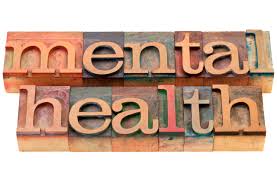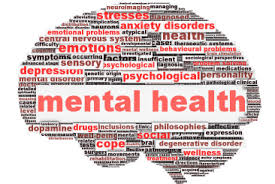 Have you ever felt depressed? Gone through a stage in which you felt like nobody cared about you? Have you lost a dear friend or family member? How did this feel?
Have you ever felt depressed? Gone through a stage in which you felt like nobody cared about you? Have you lost a dear friend or family member? How did this feel?
In life, we experience many situations that make us feel frustrated and sometimes hopeless. Imagine studying very hard – night and day – for an exam, and not getting a good result? You begin to wonder if you should have studied harder or if the effort was worth it? Losing a family member or close friend can also make us feel depressed. When these sad feelings are not taken care of, they can lead to mental health problems which can interfere with our daily lives.
Tobi and Chioma have been best friends since Primary 1 when they met at a birthday party. Since then, these girls have been inseparable to the extent that they went to the same secondary school. The only time they were apart was during the Easter holiday when they both traveled with their parents to spend time with extended family members. Chioma was a very good confidant, and Tobi felt that no one could ever understand her the way Chioma does. During Easter of 2014, Tobi and Chioma met up briefly to exchange hugs before embarking on their Easter journeys. Little did they know that this would be the last hug they would share.
Tobi who could not imagine her life without Chioma in it became a shadow of herself; everything in her world seemed to not make sense and she felt sad and frustrated at God for taking her best friend away from her at such an early age. Tobi soon sunk into depression and was no longer interested in going out of the house because everything reminded her of Chioma and how she was no longer around to be with her. Gradually, her grades dropped and she could not lead her school to Africa’s Science Competition like she has always dreamt of.
The World Health Organization tells us that Health is “a complete state of physical, mental and social well-being, and not merely the absence of disease or infirmity.” In other words, being healthy is not only a matter of having a fever or malaria; it requires full well-being – body, mind, soul, and spirit. Do you feel healthy in all these areas? As young people, we need to ensure that we surround ourselves with people and environments that promote our physical and mental development.
When we say mental health, what do we mean?
For many people, the words mental health usually bring up an image of a crazy/mad person walking helplessly on the streets or someone with a mental illness. While these are aspects of mental health, there are so many other features that characterize mental well-being. In fact, we are all affected by mental health at multiple points in our lives. According to WHO, mental health is “a state of well-being in which every individual realizes his or her own potential, can cope with the normal stresses of life, can work productively and fruitfully, and is able to make a contribution to their community.” Mental health is a part of our daily lives; the same way your body feels tired and sore from time to time, so also does your mind often get a breakdown. Our feelings about ourselves and our interactions with people and things around us shape our mental state. Yet, many of us often fail to talk about and take care of our mental health. In Nigeria, for example, there is little focus on mental health; discussing a person’s mental health status is often a taboo topic. Mental health issues include depression, anxiety and schizophrenia. Because mental health has to do with a person’s state of mind, it is a sensitive and personal topic to discuss. However, many people suffer from a mental illness, and it is important for us to discuss and address mental health as a matter of public health and personal well-being.
Facts on Mental Health
- Around 20% of the world’s children and adolescents have mental disorders or problems.
- About half of mental disorders begin before the age of 14.
- Regions of the world with the highest percentage of population under the age of 19 have the poorest level of mental health resources.
- Mental and substance use disorders are the leading cause of disability worldwide
- Each year, as many as 800,000 people die as a result of suicide and suicide is the second leading cause of death among people aged15-29 years old.
- Traumatic events such as war and terrorist attacks have a large impact on mental health.
- Having a mental disorder increases the risk of contracting diseases such as HIV
- Societal stigma and marginalization of people with a mental disability prevents people from seeking the care they need
- In many countries, the human rights of people with a mental disability are often violated
- Many countries, especially low and middle-income countries, lack skilled professionals to address mental health. In these countries, there is only one child psychiatrist for every 1 to 4 million people.
Causes of mental health issues
Mental health disorders are caused by various factors; a combination of our genes, state of mind, and our environment.
Genetics/Biology
Some mental health disorders are inherited from family members through genes. The genes in our bodies regulate how our cells work. When there’s a defect in one or multiple genes, it can alter the functioning of our cells. This is why it is good to know your family medical history and whether a particular health problem runs in your family. Knowing your family’s medical history will allow you to take care of yourself in order to minimize any bad health effects on you. For example, it is important to know if you have a history of depression in your family. Knowing this allows you to avoid or minimize certain things that can cause you to get depressed.
Poverty
Poverty causes people to get frustrated. The lack of money for survival can cause a person to worry and get depressed. When you are depressed, you are frustrated with the way things and you feel unhappy. Depression changes a person’s state of mind.
Unemployment
The staggering high rates of youth unemployment in the world has left many young people at home or wandering the streets in search of something to occupy their minds and engage their talents; but they find no opportunities. Unemployment can lead to depression which creates poor mental health.
Family instability
In today’s world, many young people are growing up with extended family members or other adults who are not their biological parents. Many youth are being raised in single-family homes with little guidance and structure from the parent. Lack of family structure can cause mental instability as the young person tries to make sense of what is going on around him/her.
Abuse
Many young people experience abuse in their daily lives. Physical or emotional abuse can damage your confidence and self-worth. Abuse can affect your mental health by causing nightmares, anxiety, depression, and drug/alcohol abuse. If you are being abused, it is important to talk to someone about what is happening; no one should have to endure abuse of any kind.
Lack of social networks
Friends are valuable human assets for any individual. Human beings have been created to be social. When we don’t have someone we can talk to about things, we feel isolated. Feeling isolated can affect your mood and cause depression.
Post-traumatic stress
Experiences like terrorism/war, the loss of a loved one, or a terrible accident can leave people feeling post-traumatic stress in which the bad event keeps playing in their memory either through nightmares or flashbacks.
How to take care of your mental health
A mentally healthy person is a strong person; someone who can deal with life’s challenges in a positive manner. A mentally healthy person has a good self-esteem, makes good decisions, and has confidence in him/herself. Although life can be unpredictable, it is important to acquire skills that help you overcome life’s ups and downs. Some young people, without appropriate coping skills, resort to harmful habits such as mis-using drugs and inflicting bodily injuries on themselves. But, this only makes the problem worse. Here are some ways to take good care of your mental health:
- Know when to get help
- Many people miss this opportunity because they don’t keep track of changes in their body. It is important to know when you are facing pressures that are interfering with your normal daily activities. These pressures might be affecting your mood, your eating habit, sleeping pattern, and your interaction with your friends. For example, you used to enjoy hanging out with your friends, but recently, you no longer want to be around them. The kind of help you will need will depend on the issue you are having. Some issues can be addressed with some positive advice from a trusted friend or adult, and others might require the assistance of a mental health specialist. The important thing is to get help early. Getting help early will ensure that your life and your future happiness are not compromised. Seek the help of a counselor when dealing with emotional pain such as the loss of a loved one or abuse; talking to someone can help you come up with a solution.
- Stay optimistic
- Keep working hard and things will get better. Speak positive things/messages to yourself such as “It is well,” or “This situation is not permanent,” or “I will get through this.”
- Surround yourself with friends and positive people
- Don’t allow frustrations to overwhelm you; remember that no situation is permanent
- Don’t hold on to grudges; forgive and let live
- Stay active and exercise regularly
- Exercise refreshes your mind and eases stress. Make sure you take regular walks to stretch your legs and body and get fresh air to relax your mind.
- Maintain a healthy diet
- Do you know that diet affects mental health? In fact, your state of mind also affects your choice of diet! There’s a saying that “You are what you eat.” Keeping a healthy diet is essential for protecting your mental health. When you eat healthy meals, your brain gets the nutrients it needs to function at its best. So, eat your vegetables, whole grain bread, beans, fish, and goof fat usually found in seeds and nuts.
Where to seek help?
- School: for young people in school, many schools have counselors who can speak with you about how you feel. They are available to listen to you and provide appropriate wisdom and guidance.
- A trusted adult: if you are not in school, find an adult who you admire and/or feel that you can trust in your community. This adult should be someone who would listen to you and provide you with positive advice to improve your self-esteem and the situation.
- Health centers/organizations: places like Action Health Incorporated (AHI) are available and offer youth-friendly services to help young people navigate any health and social challenges they might be facing.
Advocacy for Mental Health
Do you know that Nigeria’s first Mental Health Policy was developed in 1991? However, since then, the document has not been revised. We need to generate more attention for mental health awareness and service provision. Speak out and ask the government to put mental health as a priority on the public health agenda. Countries like Nigeria with high rates of poverty and insecurity have a high risk of mental illness. We need greater financial investments in mental health care and resources.
It is important to feel good about yourself – physically, mentally, and socially. Having a good feeling allows you to live a happy life and pursue your dreams and goals with focus and energy. Simple changes to your lifestyle can make a huge impact on your mental health. Stay physically and mentally healthy!
References:
- Young Minds. “What’s worrying you?” http://www.youngminds.org.uk/for_children_young_people/whats_worrying_you
- Medicine Net. “Mental Illness Basics.” http://www.medicinenet.com/mental_illness/article.htm.
- Rethink Mental Illness. “Looking after your mental health.” http://www.rethink.org/living-with-mental-illness/young-people/looking-after-your-mental-health
- Health Blog NG. “Demystification of Mental Illness is a Critical Step in Improving Mental Health Delivery in Nigeria.” http://www.healthblogng.com/demystification-of-mental-illness-nigeria/
- Rethink Mental Illness. “What is mental health and mental illness?” http://www.rethink.org/living-with-mental-illness/young-people/what-is-mental-health
- 10 Facts on Mental Health. http://www.who.int/features/factfiles/mental_health/en/. Accessed: August 10, 2015








You must be logged in to post a comment.